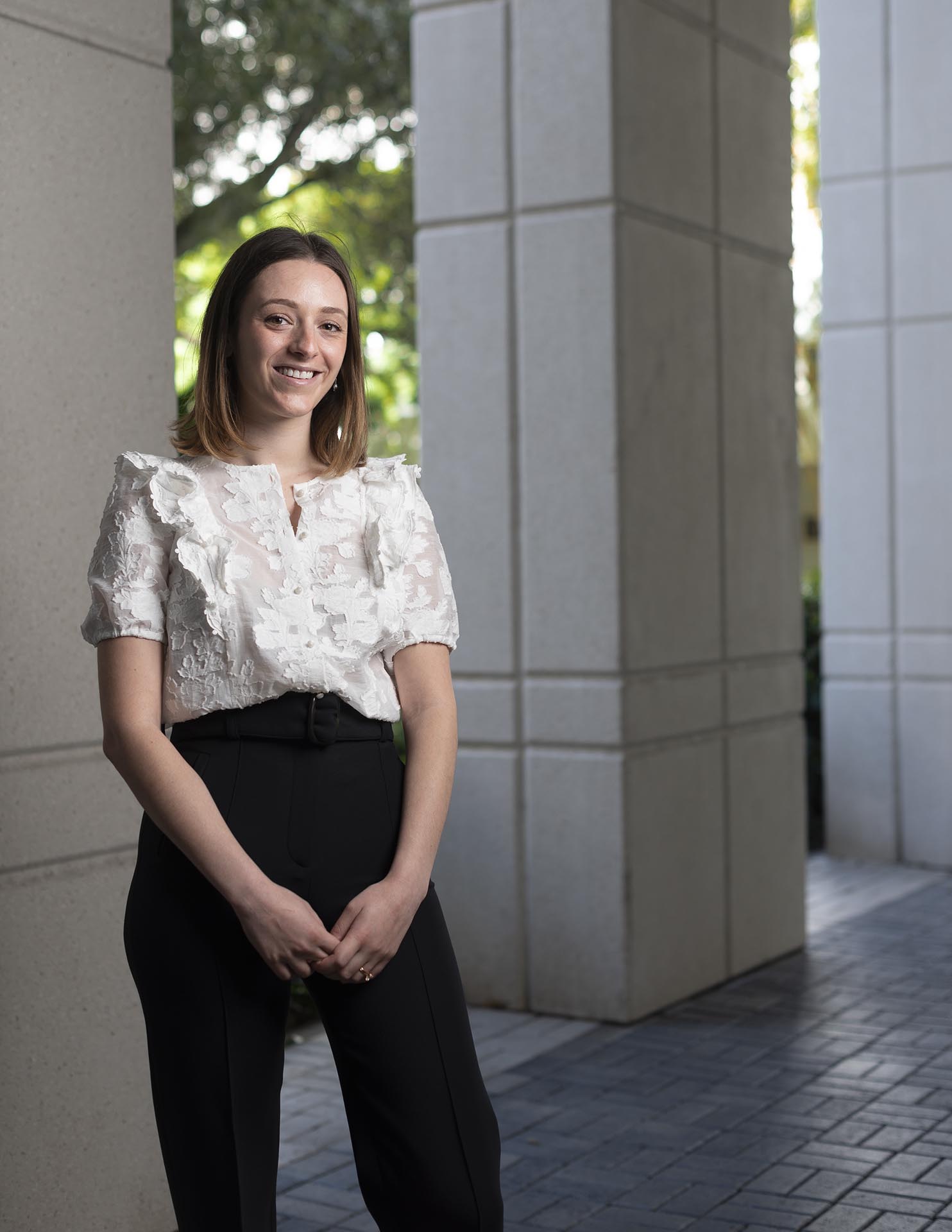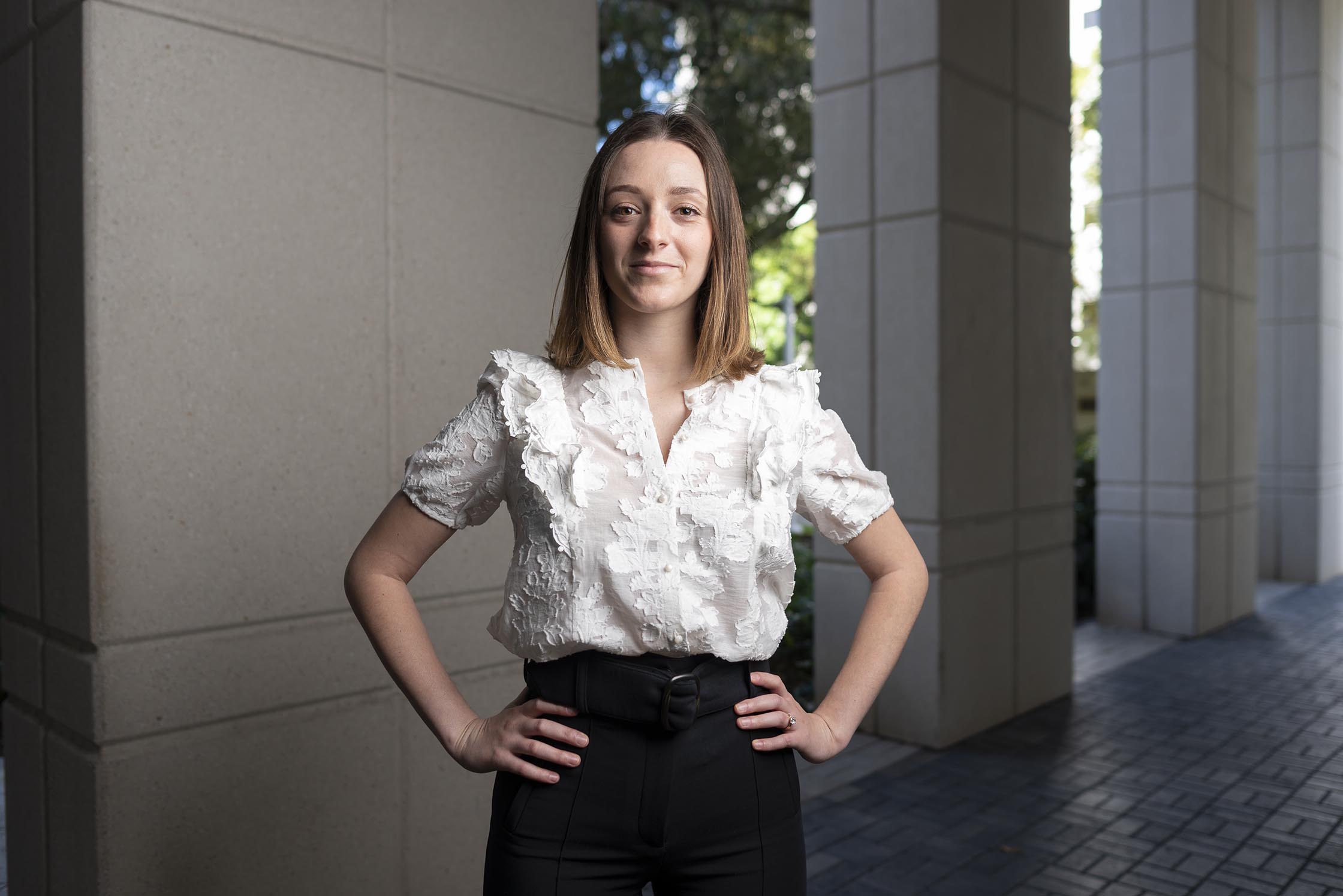Advocating for Adolescents and Reproductive Rights
After undergraduate classes in pre-med, English and economics at Wellesley College, graduate courses in health policy at the Massachusetts Institute of Technology and a job as a pharmaceutical consultant, “I wanted to apply all that training directly to helping people,” Marika Psyhojos said. Today she is a third-year M.D. candidate at the Miller School.
By Bob Woods
Photograph by Tom Salyer

Marika Psyhojos
How did your earlier experiences ultimately lead you to the Miller School?
My mother is a nurse who ended up caring for her own mother and other older relatives. I grew up helping her. That’s what drew me to medicine — getting comfortable with seeing sick bodies and people who needed to be cared for and loved.
In January, you took second place in the American Physician Scientist Association’s national virtual meeting. What was the subject of your presentation?
One of the most important parts of my medical education has been serving as co-president of Reproductive Health Advocates, an organization of more than 30 Miller School students who help uninsured, undocumented and underserved adolescent women access contraception, pregnancy support and postpartum care. The presentation was about my work with RHA. These are people whom the system has left behind, and we want to make sure they’re heard and don’t fall through the cracks of our very complicated health care system.
What is your role at RHA?
I get referrals from doctors who have a patient who wants contraception or who needs an abortion or who just had a baby and needs help. I reach out to those patients to counsel them and connect them with what they need.
Is the logical next step in your journey a specialty in OB/GYN?
Actually, I plan to specialize in pediatrics. I love caring for children of all ages and really enjoy caring for adolescents. It’s so rewarding to destigmatize taboo topics and help kids and teens take steps toward a healthy future. One goal of advocacy is to enact change — when you treat kids, the changes you inspire can affect their whole lifetime. I believe that reproductive health issues are really about fairness. In this day and age, nobody should have a hard time getting reproductive health care, and no kid should be embarrassed to ask about their body.![]()



